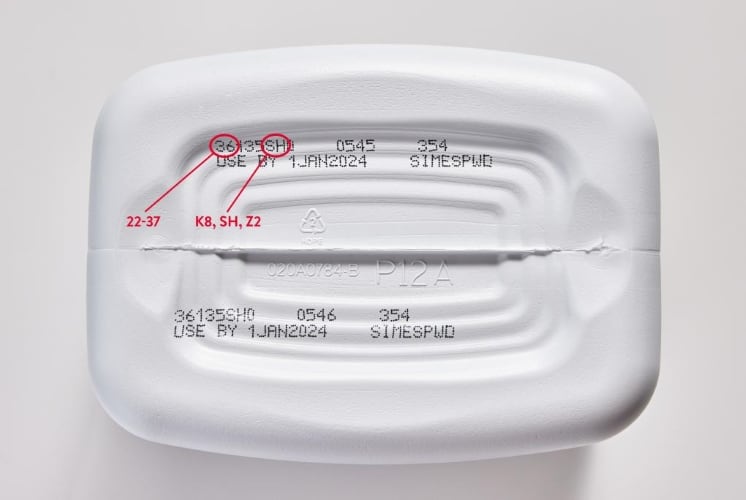The FDA unveiled a fresh package of measures including guidance that outlines ‘increased flexibilities’ regarding the import of certain infant formula products as it attempts to increase availability in the US. The agency said it encourages infant formula manufacturers worldwide to take advantage.
“The FDA is leaving no stone unturned to further increase the availability of infant formula. We are doing everything in our power as part of the all-of-government efforts to ensure there’s adequate product available wherever and whenever parents and caregivers need it,” said FDA Commissioner Robert Califf.
‘We hope this call to action will be answered’
The US normally produces 98% of the infant formula it consumes. However, shortages have hit the country following higher demand and a large-scale recall from one of the country’s biggest manufacturers, Abbott Nutrition.
The FDA acknowledged that ‘many’ US shoppers haven’t been able to buy infant formula and other medical foods. The organization has been working with US producers to try and improve supplies – and now it hopes overseas manufacturers will also step into the breach.
Califf said the relaxed rules would allow manufacturers who don’t already sell product in the US to enter the market ‘efficiently and safely’. “We are hopeful this call to the global market will be answered and that international businesses will rise to the occasion to assist in bolstering the supply of products that serve as the sole source of nutrition for many infants.”
What are the new rules?
The FDA has said it would not object to the imports of certain infant formula products produced overseas and intended for foreign markets. It also may provide 'flexibilities' to those who manufacturer infant formula products domestically for export, meaning these supplies could be re-directed to the domestic market.
“Companies seeking to take advantage of these flexibilities should submit information for the FDA to quickly evaluate whether the product can be used safely and whether it provides adequate nutrition,” the FSA said. This will include subjects like labeling, information on nutritional adequacy and safety testing, and information about facility inspection history.
The FDA is performing a balancing act between the dual priorities of safety and speed, it acknowledged. “The agency intends to prioritize submissions for products that can demonstrate the safety and nutritional adequacy and have the largest volume of product available and/or those who can get product onto US shelves the quickest.”
Discussions with manufacturers over additional supply are already underway, it revealed.
Streamlined processes already sees imports up 300%
This is the FDA’s latest move to make it easier to import infant formula into the country since the crisis began in February. The organisation has already implemented a streamlined process for formula at US ports of entry. This means formula coming from abroad can be dispersed quickly throughout the country.
This work has already resulted in a 300% increase in imports in the year-to-date versus last year. The FDA 'has and will continue' to actively work with the US Department of Agriculture, UK and European authorities to expedite entry for products made abroad, it said.
“All of this around-the-clock work has already begun to improve supply and availability with most manufacturers, now producing at normal or expanded capacity. The FDA expects that the measures and steps it is taking with infant formula manufacturers and others will mean more and more supply is on the way or on store shelves moving forward.”
Citing data from IRI, in-stock rates across retail stores are ‘improving’, with nearly 80% in-stock rates reported for the week ending May 8. FDA predicted the supply of infant formula will ‘continue to improve over the next couple of months’.
Abbott: Production could restart 'within two weeks'
Progress has also been made on efforts to get production moving at Abbott Nutrition's Sturgis, MI facility.
Production at the site has been suspended since February, when Abbott initiated a voluntary recall after four consumer complaints of infant illness related to products produced at the facility. These complaints include three reports of Cronobacter sakazakii infections and one report of Salmonella Newport.
In a statement yesterday, Abbott revealed it has entered into a 'consent decree' with the FDA, a ageement on the steps necessary to resume production and maintain the facility. The decree is subject to court approval.
"Our number one priority is getting infants and families the high-quality formulas they need, and this is a major step toward re-opening our Sturgis facility so we can ease the nationwide formula shortage. We look forward to working with the FDA to quickly and safely re-open the facility," said Robert Ford, chairman and chief executive officer, Abbott. "We know millions of parents and caregivers depend on us and we're deeply sorry that our voluntary recall worsened the nationwide formula shortage. We will work hard to re-earn the trust that moms, dads and caregivers have placed in our formulas for more than 50 years."
Once the FDA confirms the initial requirements for start-up have been met, Abbott could restart the site within two weeks. The company would begin production of EleCare, Alimentum and metabolic formulas first and then begin production of Similac and other formulas. From the time Abbott restarts the site, it will take six to eight weeks before product is available on shelves.




